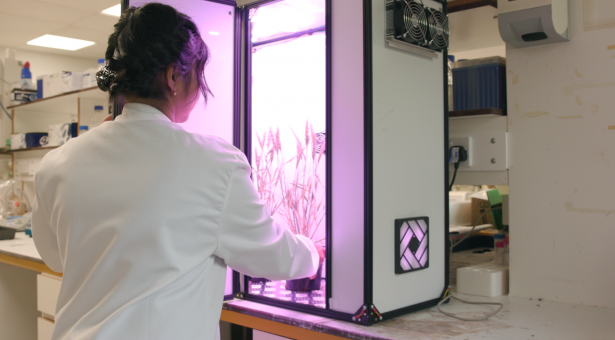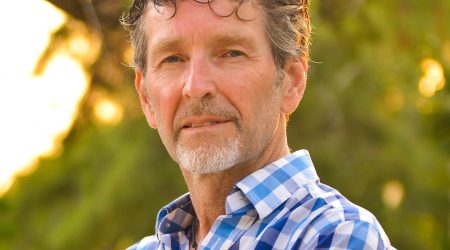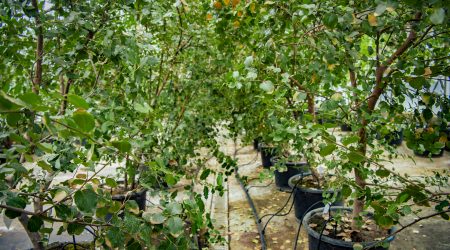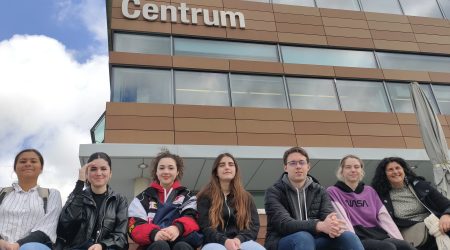Norwich Research Park team in line for early-career innovator award

A team of young innovators based on the Norwich Research Park have made the final of the BBSRC Innovator of the Year 2019 Awards.
Their open source project has made a technique called speed breeding more accessible to the research community.
The team from Quadram Institute Bioscience (QIB), the Earlham Institute (EI), the John Innes Centre (JIC) and the University of Oxford have taken speed breeding to the next level by developing a scaled-down version of the technology.
Team members Oscar Gonzalez-Navarro (QIB), Ricardo H. Ramirez-Gonzalez (JIC), Sreya Ghosh (JIC), Luis Yanes (EI) and Marcela Mendoza-Suarez (University of Oxford) are all postdoctoral research scientists or PhD students. Together they undertook a BBSRC/EPSRC-funded project to create a “Bench-top Controlled Environment Growth Chamber for Speed Breeding and Crop Transformation”.
The team produced a growth chamber that is more affordable and comes with free instructions that enable users to customise how they use the equipment and the associated software. The growth chamber allows the control of light, photoperiod and temperature to accelerate the growth rate of certain crops. This leads to a reduction in how long it takes to grow the crops but at a lower cost.
Their project has been supported by the Biomaker Challenge – an OpenPlant-funded venture that fosters interdisciplinary collaboration to develop hardware and software for biological applications –
Oscar Gonzalez-Navarro said of the work, “This exciting project has already been published as part of a Nature Protocols article (Ghosh et al., 2018) where instructions on how to build it and perform speed breeding in small-scale are provided. Because of this, 37 people from 13 countries, including four developing countries are assessing the opportunities our technology could provide them.”
Sreya Ghosh highlighted the importance of the technique, “Our speed breeding cabinet technology could help to increase agricultural productivity in the next four decades to feed the growing global population. By shortening the breeding cycle, the speed breeding cabinet offers an affordable and portable platform for researchers and breeders in resource limited environments to rapidly develop new climate-resilient high-yielding crop varieties to address future food security challenges.”
Luis Yanes, a scientific computing specialist at EI, coded the software behind the machine: “Our software is publicly available, so anyone wanting to build a growth chamber can use it and adapt it. It was fantastic to work on a project involving researchers from three institutes on Norwich Research Park and Oxford University, as we learned from each other the whole way along. It shows how a little bit of funding in the right hands can have a big impact.”
The team will travel to London on 15 May 2019 where 12 finalists will compete at the Science Museum to be named Innovator of the Year.



